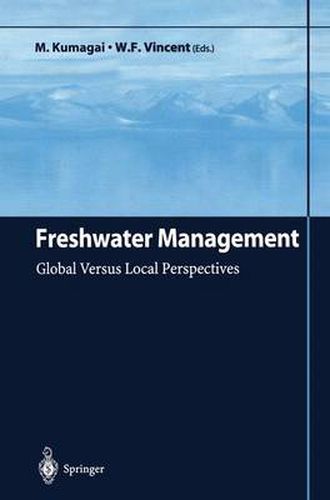Readings Newsletter
Become a Readings Member to make your shopping experience even easier.
Sign in or sign up for free!
You’re not far away from qualifying for FREE standard shipping within Australia
You’ve qualified for FREE standard shipping within Australia
The cart is loading…






This title is printed to order. This book may have been self-published. If so, we cannot guarantee the quality of the content. In the main most books will have gone through the editing process however some may not. We therefore suggest that you be aware of this before ordering this book. If in doubt check either the author or publisher’s details as we are unable to accept any returns unless they are faulty. Please contact us if you have any questions.
The globalization of trade, monetary and fiscal policies, capital markets, and investment patterns is reshaping the world economy and is leading to new financial, commercial, and marketing structures as well as unprecedented economies of scale. Simultaneously, national and international awareness and to strengthen. There is consensus among responses to accelerating environmental degradation continue most developed countries that the rapidly evolving new economic order needs to be well integrated with policies to maintain or restore environmental quality. Many challenges remain, however, in evaluating the geo-ecological implications of economic globalization, and in formulating the appropriate management responses. In lakes and rivers, the management of water supply and quality has largely proceeded on the basis of local considerations rather than at the global scale that has been more typical of environmental management of the atmosphere and ocean. It is increasingly apparent, however, that high-quality water resources are now in critically short supply not only because of local problems such as over-irrigation and eutrophication, but also as a result of larger-scale climate effects on the hydrosphere. This magnitude of impact will increasingly require the integrated monitoring and management of water resources on a planetary scale, with world criteria for environmental assessment, restoration, and conservation strategies. The increasing extent of world trade in potable freshwater heightens the urgency for establishing international approaches, criteria, and regulations.
$9.00 standard shipping within Australia
FREE standard shipping within Australia for orders over $100.00
Express & International shipping calculated at checkout
This title is printed to order. This book may have been self-published. If so, we cannot guarantee the quality of the content. In the main most books will have gone through the editing process however some may not. We therefore suggest that you be aware of this before ordering this book. If in doubt check either the author or publisher’s details as we are unable to accept any returns unless they are faulty. Please contact us if you have any questions.
The globalization of trade, monetary and fiscal policies, capital markets, and investment patterns is reshaping the world economy and is leading to new financial, commercial, and marketing structures as well as unprecedented economies of scale. Simultaneously, national and international awareness and to strengthen. There is consensus among responses to accelerating environmental degradation continue most developed countries that the rapidly evolving new economic order needs to be well integrated with policies to maintain or restore environmental quality. Many challenges remain, however, in evaluating the geo-ecological implications of economic globalization, and in formulating the appropriate management responses. In lakes and rivers, the management of water supply and quality has largely proceeded on the basis of local considerations rather than at the global scale that has been more typical of environmental management of the atmosphere and ocean. It is increasingly apparent, however, that high-quality water resources are now in critically short supply not only because of local problems such as over-irrigation and eutrophication, but also as a result of larger-scale climate effects on the hydrosphere. This magnitude of impact will increasingly require the integrated monitoring and management of water resources on a planetary scale, with world criteria for environmental assessment, restoration, and conservation strategies. The increasing extent of world trade in potable freshwater heightens the urgency for establishing international approaches, criteria, and regulations.